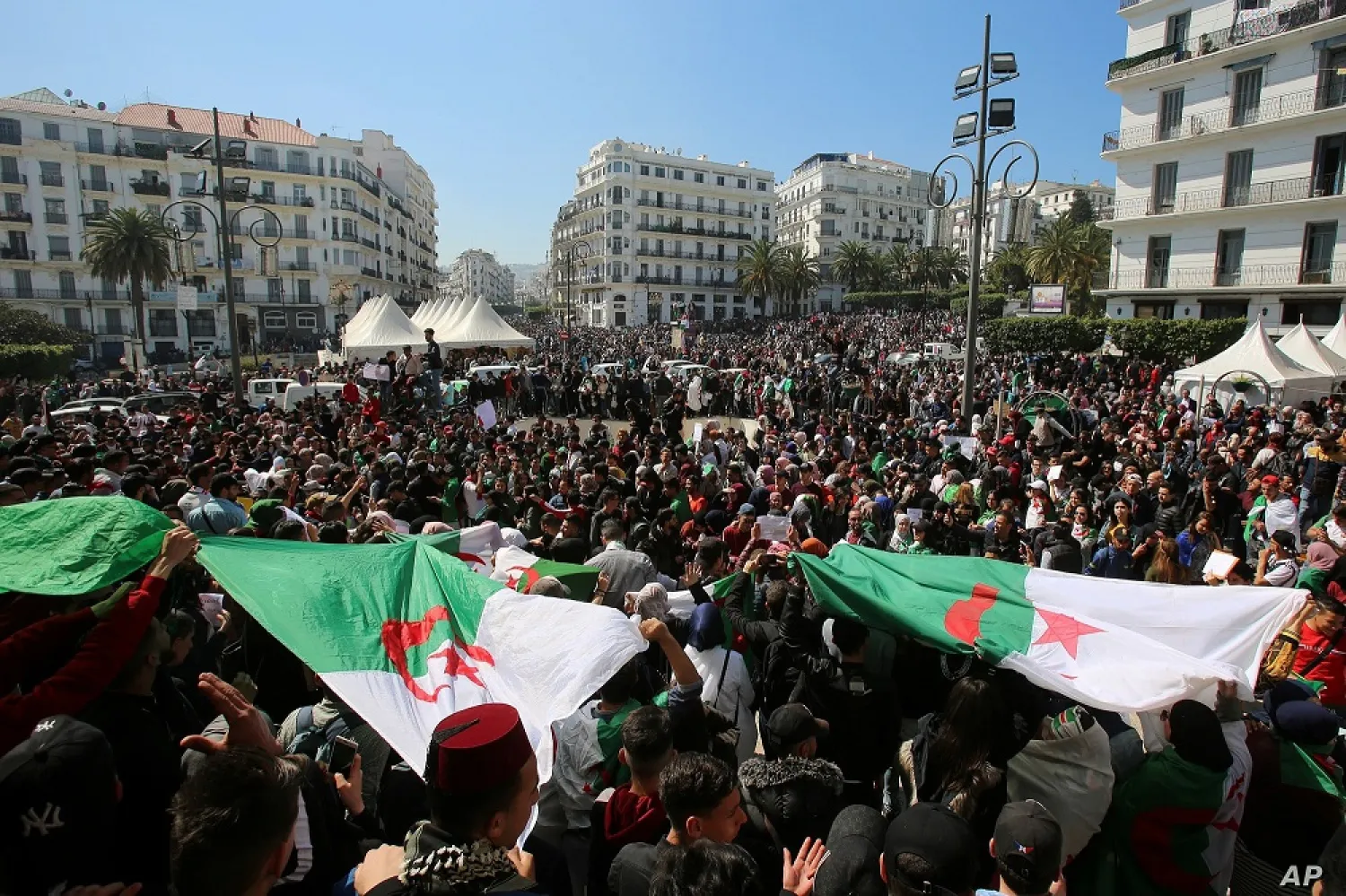Calm has been restored in two Algerian areas, following protests on Saturday night against poor living conditions and the lockdown imposed over the coronavirus.
Authorities fear the protests would revive the popular demonstrations that have come to a halt following the virus outbreak.
Demonstrations were organized in the natural gas-rich Laghouat (500 km southern Algiers) city center as hundreds of unemployed people stormed the public squares to demand job opportunities.
Dozens of Algerians, who demanded improved housing and health services and implementation of infrastructure projects, also joined them.
Laghouat is the gateway to the desert, which covers two-thirds of the country’s area. Its residents constantly complain about being marginalized and “excluded” from government positions. They also believe they are being deprived from the desert’s resources, especially oil and gas.
Protesters marched through the city’s streets quietly, underscoring their peaceful movement.
Security forces were caught off-guard by the protest even though the area has been tense for years due to complaints by locals over shale gas drilling they believe is harmful to ground water and consequently their crops, which are a source of income to thousands.
On the same night, dozens of youths took to the streets of the coastal state of Jijel (400 km east of the capital) to protest against the lockdown extension in their city and several other states for two weeks.
They chanted slogans expressing their refusal to live in “jail cells.”
This state lacks recreational means and suffers from a high unemployment rate despite its huge tourism and services potential.
Local observers believe that Algeria is on the verge of a “popular explosion” due to dwindling hard currency resources, following the drop in oil prices since 2014.









